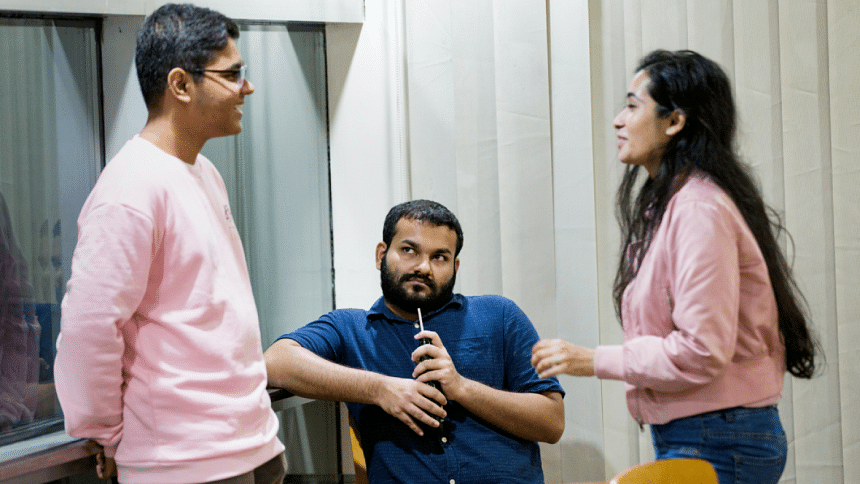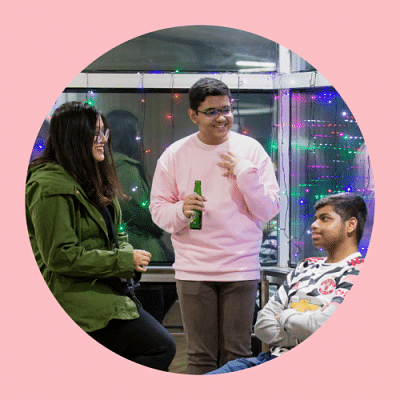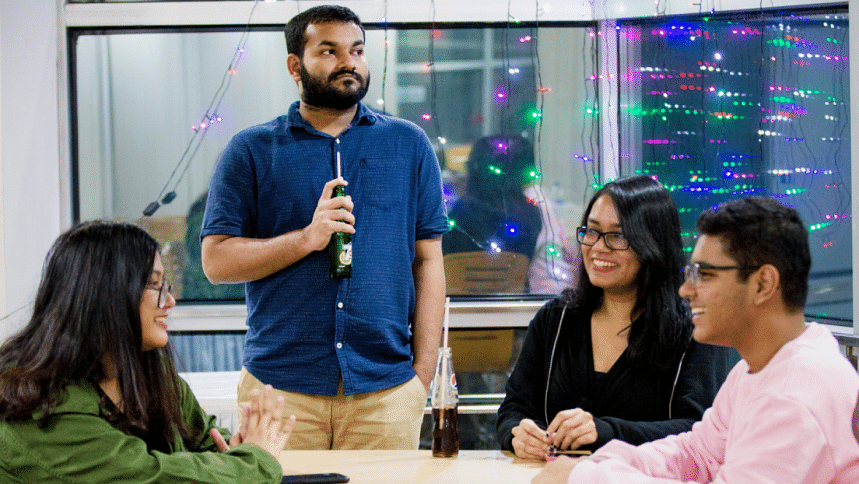Exploring friendship as an adult

It's hard to find a partner at this age. It's harder to make friends.
Now, in my late twenties, I can honestly say that I have been lucky enough to find a few very good and one great friend. And I met this one great friend fairly later in life, only a couple of years ago. In retrospect, however, I think it is probably one of the reasons why we bonded so powerfully — not to be misunderstood with "easily", because, as we all might be aware, making friends at this age is not a cakewalk.
What we bonded over, however, was exactly that — the increasing struggles of connecting with other people as we grew up.
"Making new friends when we were young seemed like a natural process, when we clicked with our peers or classmates or neighbours, and somewhat mysteriously, friendships developed," says Sakib Ahmed, who works as an environmentalist. And in adulthood, it is more difficult.
It seems almost impossible for us, as full-time working adults, to carve out the time to see through the plans we make with our friends over a chance conversation. The New York Times recently re-ran their 2012 article "Why Is It Hard to Make Friends Over 30?" because the topic is so ageless. In it, they cited a peer group study that "observed that people tended to interact with fewer people as they moved toward midlife, but that they grew closer to the friends they already had." It makes sense for the most part. But not everyone would agree that they've tended to remain friends — never mind getting closer — with their school-college-university friends.

An individual who works at an ad agency, and wishes to remain anonymous, says she can't relate to her school girlfriends anymore. "All my friends are married now and some even have children," she states.
"Most of their conversations tend to revolve around their family: what the children eat, what makes happy or annoys them; their partners' quirks and habits; and how hard it is to maintain a household. And it is fine, of course, to talk about that. It's just that as a single woman in my late 20s, still living with my parents, with no plans on getting married anytime soon, I sometimes don't know how to contribute to that conversation beyond a superficial level. I just can't connect with them at times," she adds.
In that regard, we can assume that relatability is an important ingredient in the recipe for remaining friends. But what about meeting new people? As some people rightly point out, it isn't like there's a Tinder for making friends.
Shovy Zibran, who grew up in three different countries, says, "Making new friends is definitely a lot easier task then holding on to the old ones for someone like me. I've managed to remain in touch with 10 people in my life who I've known since I was 10 years old myself. I don't think they will ever be out of my life but at the same time, I don't think I'll ever stop looking for new souls and to find out their stories, their emotions, their strongest love and strongest hate. Especially the way I move countries, I need to know how to share my time with people."
Yet, in a conservative culture like ours, we cannot meet people as organically as people perhaps do abroad, mainly because of safety concerns. Moreover, we have other responsibilities that sometimes take precedence; investing time and effort into making new friends seems pointless, especially when we consider that it may not work out in the end and might hamper our daily routine. At times, it's just hard work to have to consistently put in the same amount of effort throughout the initial stages of forming that friendship.

As Shovy articulates further about meeting new people, "Making friends as an adult is tough because of the added baggage. You're already carrying your own emotional baggage and that of the friends you already have and adding new baggage to it seems like an unnecessary task for most of us. People in general tend to start closing up emotionally as they grow up and their personal goals and dreams start to take priority more than anything else. Making new friends in the middle of it all seems tedious".
Sakib offers up a solution to this, however, saying, "I think in adult friendships, we should lower our expectations, and foster the ability to understand and forgive much more. We shouldn't expect our friends to be perfect human beings. For example, we shouldn't take cancellations of a hangout, or late replies to texts personally, or as an indication that our friends have grown tired of us and don't want us around anymore."
He adds, "It is important to understand their commitments, and extend compassion and patience during difficult times, rather than be upset or irrational. We should realise that we all have to deal with our issues."
This, I feel, is an important issue that has been touched upon. Often, in our tendency to manifest easy friendships like we had in our childhood, we tend to forget that we are adults now — with adult responsibilities, obligations, and problems. We expect our friends to always be there for us, regardless of whether we are able to do the same, neglecting that there are now other, personal factors to take into account.
And on the other hand, if we feel our efforts aren't acknowledged enough (read: the way we want them acknowledged), we start to get a chip on our shoulders.
Understandably, it is not as easy to maintain friendships, and it shouldn't be either. There is a world of things we need to pay attention to, especially now when we've finally, fully stepped into "adulthood".
Like other relationships, nurturing a good, healthy friendship takes work. We have to be more understanding towards each other; care about our friends, have empathy for their situations and circumstances. Besides, we can prioritise who we devote our time and effort to. We put our foot in, test the waters and see if we like how the temperature feels, whether we're meeting new people or checking in with an old friendship over time.
In the end, "Once you figure out who's staying forever you automatically start allocating time for them whether it be once every six months or once every two weeks," says the anonymous wise lady.

 For all latest news, follow The Daily Star's Google News channel.
For all latest news, follow The Daily Star's Google News channel. 



Comments